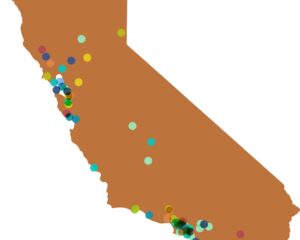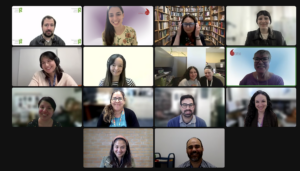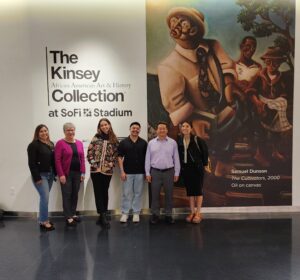In 2014, California Humanities launched the War Comes Home initiative that included a series of interviews with veterans and scholars about what it means to have served in the military and to have come home from war. Our primary goal was to create a series that reflected the diversity of experience and perspective of veterans of different eras, backgrounds, and conflicts. In recognition of the recent Veterans Day holiday, we invite you to revisit these interviews. We hope they will help the many Californians who have not served in the military or fought in a war to understand better the experiences of those who have.
War Comes Home Video Interviews:
Shad Meshad is a Vietnam War veteran, therapist, and Founder of the National Veterans Foundation. For over 30 years, he has served as an on-call crisis counselor for veterans, responding personally to hundreds of suicide and homicide calls annually. As a veteran’s advocate, Shad helped redefine what had been called “post-Vietnam Syndrome” into what we now know as PTSD.
“The Vietnam experience changed my life. I knew that if I survived Vietnam when I got back, I owed it to every combatant to bring these men and women back. It’s the greatest thing in my life to be able to do that…I have to give back.”
Dottie Guy served in Iraq in 2003 as a member of the military police guarding high-value detainees. She was the Outreach Coordinator for Iraq and Afghanistan era Veterans for the Oakland Vet Center and sat on the San Francisco Veterans Affairs Commission
“I sometimes feel like a circus freak show because I’m this novelty. I’m a Black woman veteran. I’m not really, in the grand scheme of things, something you see every day. I’m a Black woman, and I held a job that wasn’t traditionally a Black woman’s role. I was military police. So, it was kind of empowering to be in this position. It was really good to be a little bit of a role model.”
Karl Marlantes served as a Marine Lieutenant during the Vietnam War and is the author of two New York Times bestsellers: Matterhorn: A Novel of the Vietnam War and the nonfiction book What It Is Like to Go to War.
“Ghosts haunt you. Ghosts are the unconscious things of war—the memories, the stuff that you’ve shoved down. This stuff takes a while before it comes to the surface. You can hang on so long, and then at some point, you have to deal with it. I can tell you at what point that was, and I realized I had to start dealing with the ghosts.”
Michelle Dallocchio is an artist, author, Chamorro/Mariana Islander, and Iraq War U.S. Army Veteran. As a member in 2004-05 of Team Lioness, an all-female unit that performed house raids and personnel searches in Ramadi, she was one of the first U.S. women to serve in a combat role officially.
“How I would want to be welcomed (back) if I could go back in time and experience things differently? It would have been nice if somebody would have just listened to me. The people who’ve experienced it first-hand have the answers within themselves.”
Rev. Dr. Rita Nakashima Brock is a theologian and co-author of Soul Repair: Recovering from Moral Injury After War. The daughter of a medic who served in both the Korean and Vietnam Wars, her writing and scholarship are profoundly shaped by her first-hand experience with the impact of war.
“So many veterans say, ‘What is this moral injury thing?’ and I get two sentences into the definition, and something lights up in their face, and they say, ‘Oh right, I’ve got that.’ I’ve spent 30 years as a theologian and as a feminist activist, and I’ve been antiwar since I was 18. I do what I can to prevent war, but once a war happens, we have to deal with the aftermath, and we have to deal with what comes home and how people come home and how we make it so hard for them to come home.”
Geoff Millard was a member of the New York National Guard and among the first military responders to Ground Zero following the attacks of 9/11. After deployment to Iraq in 2003, he became disillusioned and joined Iraq Veterans Against the War.
“Any time somebody says to me, ‘Well you’re just being angry, or that sounds angry,’ well, yeah, I am angry. You sent me off to war for 13 months over a lie. If I don’t get angry about that, I’m dead inside.”
Starlyn Lara served in the United States Army from 1995 to 2007 and was the Women Veterans Program Manager for Swords to Plowshares in San Francisco.
“I transitioned from being a young kid into being a soldier, a damn good soldier. Then I transitioned again from being a damn good soldier to, ‘How the hell do I be a civilian?’ There’s no rulebook. Who am I supposed to be if I can’t be a warrior? Who am I if I can’t be a soldier?”
Carol Burke is a Professor of English at UC Irvine who specializes in military culture and veterans. As a folklorist, she embedded with U.S. Army combat units in Iraq and Afghanistan as a cultural liaison.
“With the return of the veteran, a nation must be willing to take on the moral responsibility of asking some of our citizens to execute violence against another nation on our behalf. And if the nation isn’t prepared to assume that moral responsibility, the return home is going to be fraught with all kinds of complicated psychological issues that fall then squarely on the shoulders of the individual vet. And that moral responsibility can’t be held by veteran after veteran. It has to be assumed by the nation.”
Brayden Yoder is a writer and filmmaker originally from Hawaii who served as a U.S. Army officer in Germany and Iraq.
“I did my duty, and I think most of my friends would just say we did what the nation asked us to do when we were called upon, and we can be content with that. Those who had serious medical issues, whether psychological or physical, those are the people I’d like to see get taken care of. But I don’t think the nation owes me anything at this point. I got more out of the military than I put in, and I’m really proud of what I did, and I’m happy to call myself a veteran.”
To learn more about California Humanities’ 2014 War Comes Home initiative click here.





